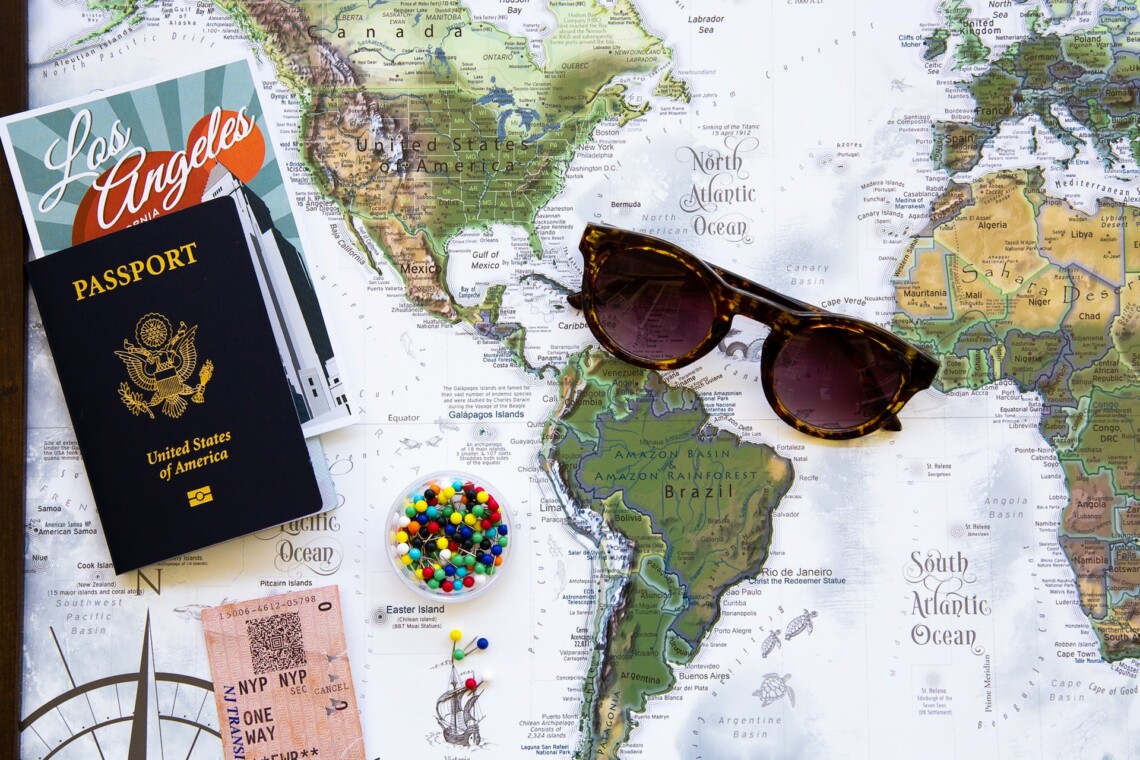Best Art Market in Bali That’s Worth a Visit!
- 17/01/2024
- Articles
Illustration of Best Art Market in Bali, photo by Charlie Pauly The Island of Gods is home to a truly fascinating culture... Read More

Illustration of Visa and Passport, photo by GeoJango Maps on Unsplash
Embarking on a journey to the enchanting island of Bali is a dream for many. However, before you start packing your bags and envisioning the swaying palm trees, it’s crucial to understand the visa requirements that govern your entry. In this guide, we’ll unravel the essential Bali visa regulations every traveler should be well-versed in. Whether you’re planning a short getaway or an extended stay, let’s navigate the ins and outs of Bali visa regulations, ensuring your trip is nothing short of seamless and unforgettable
Illustration of Tourists, photo by Leo on Unsplash
If you’re a foreign national from one of the member countries of the Association of Southeast Asian Nations (ASEAN), you’re in luck. Indonesia offers a visa-free entry policy for citizens of these nations, allowing them to explore the beauty of Bali for up to 30 days.
The ASEAN countries covered under this arrangement include:
This policy reflects the strong bonds and collaborative spirit among ASEAN member states. It enables hassle-free travel for citizens within the region, fostering cultural exchange and mutual understanding.
However, even if you’re from one of these ASEAN nations, it’s essential to ensure that your passport has adequate validity for the entire duration of your stay in Bali. Additionally, while visa-free entry allows for a 30-day stay, it’s wise to be aware of your travel dates and plan accordingly to make the most of your visit.
A visa is a crucial document that grants legal permission for foreign nationals to enter and stay in a particular country. In the case of Bali, Indonesia, specific visa requirements are in place to regulate the entry of travelers and ensure compliance with immigration policies. These regulations address various factors, including security, economic considerations, and diplomatic relations.
Illustration of Holiday, photo by Artem Beliaikin on Pexels
When it comes to navigating Bali’s visa regulations, understanding the main types of visas available is key to planning a seamless trip. Whether you’re embarking on a short vacation or planning an extended stay, familiarizing yourself with these visa options will ensure you make the most of your time on this enchanting island. Let’s explore the primary types of visas that most travelers utilize when venturing to Bali.
1. Electronic Visa on Arrival (e-VOA) or Tourists Visa
For travelers hailing from countries that aren’t covered under Bali’s visa-free entry policy, the e-Visa on Arrival (e-VoA) option provides the easiest way to obtain a visa without the need to queue and apply for a visa at the airport.
The validity period of e-VOA is 30 days and extendable for another 30 days but be careful, you will need to extend it the latest 7 working days before it expires.
For your information, e-VOA must be used within 90 days from the date of issue. Please note that the visa validity period is different from the period of stay. Contact us for more details about e-VOA or any assistance for your visa extension in Bali. Currently, there are 97 countries, governments of special administrative regions of a country, and certain entities that are eligible to apply for e-VOA and VOA.
Before your departure from your country, you can apply for e-VOA. The e-VOA fee is IDR 500,000 Please note that every payment via Debit/Credit Card will incur additional fees according to the financial institution’s regulations.
It’s essential to have the required documentation and fee ready for processing. Here are some required documents that you must submit in order to apply for e-VoA.
2. Visa on Arrival (VOA) B213
The Visa on Arrival (VoA) option provides a straightforward way to obtain the necessary travel documentation. This allows you to enter Bali and stay for a specified duration, typically 30 days, with the possibility of an extension if needed.
Upon arrival at Ngurah Rai International Airport or select seaports in Bali, you can apply for a VoA. It’s essential to have the required documentation and fee ready for processing. The fee for VoA is IDR 500.000 per person (applies to adults and children).
3. B211 Visit Visa for Digital Nomads
Foreigners or Digital Nomads who want to travel to Bali and stay for longer than 60 days are suitable to apply for this visa. Either you are coming for a holiday, visiting a family, business purpose, attending a seminar or many more. It is the best option for travelers from any nation who do not qualify for Visa On Arrival as well as non-residents who want to travel to Indonesia and stay there for a long time.
As a visa agency, we can assist you in applying for Single Entry B211 e-Visa applications online, eliminating the need to contact the Indonesian embassy in your home country or when you arrive in Indonesia. There are, however, some documents that must be submitted in order to apply:
The B211A Tourism Visa costs around $230 (IDR3.500.000 ) with Asia Holiday as your sponsor. This includes the e-visa fee, sponsorship and our service fee. The visa process will take 7-9 working days for normal service and you have 90 days to use the visa before it expires. For more information and details about the perfect visa for your stay, our visa team will be happy to assist you. Kindly send them an e-mail: applyvisa@travelersolutionsid.com.
Join The Discussion